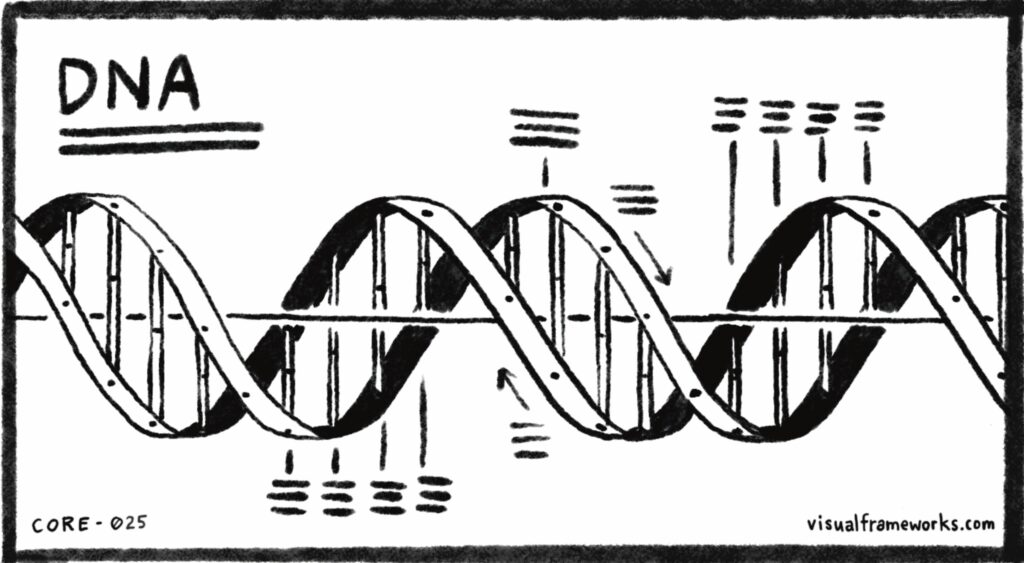
Participation.
- Live, face-to-face conversations and interactions.
- Learning in small groups with mutual accountability.
- Empirical method: Theory, hypothesis, experiment, reflection.
- Learning by doing, trial and error, exercises. Why not try it?
- Much learning is tacit, unspoken. It happens through osmosis, just being around the work or activity, learning by watching, mimicry, soaking it in.
- The most valuable things to learn cannot simply be taught; they must be not only learned but earned, by working alongside others with shared goals and commitments, trial-and-error, learning-by-doing, and reflecting together.
- Finding and generating creative energy, cooperation, encouraging each other and egging each other on.
- Learning happens not just in the classroom, but in the hallways, on the playground, in the workshop or studio, in casual conversation.
- Learning is the process of building common ground around new ideas and amidst uncertainty.
Passion.
- Learning is naturally pleasurable. It increases our cognitive range, our ability to understand and to be understood, and our agency in the world.
- Memory is encoded by emotion. Therefore if we want people to remember the things they learn, we should think of learning journeys as emotional journeys. Learning should be fun and engaging.
- Learning is fueled by curiosity, interest, enthusiasm. What you are interested in matters more than what you are expert in.
- The primary function of a teacher is to lead an exploration: to inspire a passion for continuous learning, to hold a burning question, to illuminate a path, to help students explore, experiment, try new things, learn how to learn.
- Learning works best when people can connect new ideas to something meaningful in their lives
- Don’t just educate, inspire. You can get “the facts” by watching YouTube videos and click-through courses.
Possibility.
- Engaging with the adjacent possible requires observation, imagination, courage, reflection.
- Experiments in the adjacent possible. Leaping from the edges of the known. Exploring boundaries and intersections.
- Projects that explore unknown territory. Explorations, expeditions, voyages of discovery.
- Learning how to learn. In education, what could be more important?
- People who are exploring the boundaries and edges of their interests as well as how they intersect with other people’s investigations.
- Take chances, take risks.
- Ideas flow freely.
- Working out loud, radical transparency, sharing, rapid exchange of tools and techniques.
Projects.
- Projects have a beginning, middle and end.
- Projects are not theories, they are practice. They are what happens when ideas and knowledge are applied to real life.
- Projects are learning experiences.
- To initiate them requires imagination, to undertake them takes courage and commitment, to finish them requires determination, persistence, and resolve.
- Observation of process creates opportunities for mimicry, improvement, improvisation.
- A completed project offers material for reflection and improvement.
- Projects have a goal. Even if learning is the only goal, there is still a goal. A goal can be a question. The goal provides direction for the project, and enables navigation. The goal provides a way to determine if the project is on course or not.
- Projects have leaders. Teachers or guides that frame the goals, lay out the journey, outfit and structure the project parameters.
Profit.
- Profit is simply another word for surplus. Stuff that you save for a rainy day.
- Sustainability is important.
- Most people need income, and there are many ways to get there. But ideally people can make a living doing something they love. To that end the School of the Possible is a working studio, with practitioners, apprentices, teachers, students, income and tuition.
- There are many ways to participate. Time, money, effort, work and so on. What you can or can’t afford should not become a barrier. Scholarships, apprenticeships, and internships are available for those who ask.
- Customers are important. The relationship you form with a customer is unlike any other kind of relationship. It tends to ensure a value exchange on both sides.
Parameters.
- Not just a school but a philosophy. A school of thought, focused on the adjacent possible, the next best step.
- A shared space for exploring possibilities.
- Minimum viable bureaucracy.
- Skin in the game.
- Everything has boundaries. Even a community for exploring possibility. The School of the Possible is not for everyone. It is for Possibilitarians.
If you’re interested in being a part of the School, consider joining us for our weekly campfire call. You can also contact us for more information, or subscribe for updates.